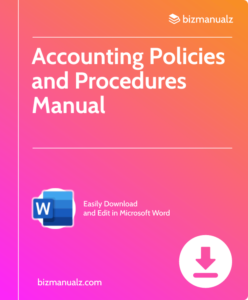How Many Business Bank Accounts to Use

When it comes to personal finance, many ask: how many bank accounts should I have? There is no universal answer it depends on individual needs and goals. Consider the purpose of each account; some like to organize funds while others prefer one central account. Multiple accounts can also yield benefits such as higher interest and waived fees. How many business bank accounts to use.
Overview of the importance of bank accounts
Why settle for one account? Having multiple bank accounts offers numerous advantages. Better organization of your finances and increased security are just two of them. By segregating funds into different accounts, you can effortlessly manage your money and reduce the risk of loss or theft.
Moreover, utilizing various types of accounts such as savings, checking, and investment accounts allows for more flexibility in meeting financial goals. You may also get access to a broader range of services through different banks.
Additionally, when you segregate funds based on their purpose or goal, budgeting and tracking progress towards objectives become easier. Also, having separate accounts for business-related transactions can make bookkeeping and tax filing simpler. and you may get access to different interest rates and investment options from various banks or financial institutions.
Therefore, don’t miss out on the potential benefits of diversifying your banking relationships! Take action now explore the options available at different banks that meet your financial objectives.
Open extra accounts strategically and allocate funds accordingly. You can increase your financial management skills while maximizing growth opportunities. Multiple accounts may be the key to taking control of your finances and achieving lasting prosperity!
Security-wise, having funds across different banks reduces the risk of losses due to fraud or system failure. In the digital age, managing multiple accounts is a breeze with user-friendly interfaces and mobile apps. Decide based on your financial objectives, preferences, and circumstance it’s a step towards financial well-being.
Fun Fact: 35% of Americans have more than one checking account (source: Bankrate).
Factors to consider before deciding on the number of bank accounts to use
To determine the optimal number of bank accounts to use, several factors should be taken into consideration. These factors can help individuals make informed decisions that align with their financial goals and objectives.
- Financial Objectives: The first factor to consider is an individual’s financial objectives. Understanding one’s short-term and long-term financial goals can help determine the number of bank accounts needed. For example, if someone has specific savings goals, they may choose to open a separate account dedicated solely to saving money.
- Transaction Needs: The second factor to consider is an individual’s transaction needs. Different bank accounts offer various features and benefits, such as different withdrawal limits and transaction fees. Taking into account one’s transaction needs and preferences can assist in deciding on the appropriate number of bank accounts.
- Organizational Preferences: Lastly, organizational preferences play a crucial role in determining the number of bank accounts to use. Some individuals prefer to keep their personal and business finances separate, leading them to have multiple bank accounts. Others may find it more convenient to have all their finances in a single account. Understanding personal organizational preferences can help make the right decision.
It is also important to note that while these factors provide guidance, each person’s financial situation is unique. Therefore, seeking personalized advice from a financial professional is recommended to tailor the number of bank accounts to one’s specific circumstances.
Historically, the use of multiple bank accounts has varied across individuals. In the past, individuals primarily held a single bank account due to limited banking options and the simplicity it offered.
However, as financial needs and services have evolved, so has the trend of using multiple bank accounts. People now often utilize a combination of accounts to manage different aspects of their financial lives effectively.
Don’t worry, you don’t need a separate bank account for your financial goals and needs, unless your financial goals involve buying the moon.
Financial goals and needs
Let’s look at some key factors that should be considered to better understand the importance of financial goals and needs. These are:
- Short-term expenses, such as bills and everyday costs.
- Long-term savings, for future goals like retirement or education.
- Emergency funds, for unexpected expenses.
- Investment opportunities, to allocate funds.
- Budget management, to ensure financial stability.
This table gives an idea of the number of bank accounts needed, depending on individual circumstances. Someone planning for retirement might need multiple accounts for long-term savings. Others may focus on daily expenses through one account.
Historically, a single bank account sufficed for all banking needs. However, as people’s financial situations have become more complex, it is necessary to separate funds based on specific requirements. This helps with better organization and allocation of resources to meet personal financial goals.
Budgeting and tracking expenses
Let’s make budgeting and expense tracking easier! Here are some helpful tips to get you started:
- Develop a comprehensive budget that includes all income and expenses. This will help you identify areas for cuts and set financial goals.
- Separate expenses into fixed and variable categories. This will give you a better understanding of where your money is being spent.
- Utilize budgeting apps and software to track and record transactions. This will make it easier to analyze spending patterns.
- Review your budget and expense tracking regularly. This will help you make any necessary adjustments.
- Establish clear financial objectives, like saving for a trip or paying off debt. This will keep you motivated.
- Automatically transfer money from your main account to a savings account. This will ensure consistent savings.
- Used the 50/30/20 rule: 50% for essentials, 30% for discretionary spending, 20% for long-term goals.
- Wait before buying nonessential items. This will help prevent impulse purchases.
By following these steps, you’ll be on your way to managing your finances effectively. It may take some initial effort, but the rewards are worth it!
Separating personal and business finances
Having two separate bank accounts – one for personal and one for business finances – is a great way to maintain clarity between the two. No mix-ups or errors! Plus, it aids accurate record-keeping and tax filing.
Plus, it offers better protection for both. Legal disputes won’t affect your personal assets if finances are distinct.
Moreover, keeping them separate minimizes the chances of intermingling funds. It’s easier to evaluate the financial health of each aspect when transactions are clearly distinguished.
A fact: Over 80% of small businesses found separating personal and business finances essential for success, according to a 2019 study by Deloitte Research.
Pros and cons of using multiple bank accounts
Using multiple bank accounts can have both advantages and disadvantages. It allows for better organization of finances as funds can be allocated to specific purposes. Additionally, multiple accounts provide a sense of security, as funds are distributed among different banks. However, managing multiple accounts can be time-consuming and may result in additional fees.
Moreover, keeping track of transactions across various accounts can be challenging. Despite these drawbacks, multiple bank accounts can be beneficial for those who prioritize financial management and diversification.
Furthermore, individuals can also consider using different types of bank accounts, such as savings accounts, checking accounts, and investment accounts, to suit their specific financial needs. With this approach, individuals can maximize their savings potential and achieve their financial goals more effectively.
Interestingly, a study conducted by J.D. Power titled “Retail Banking Satisfaction Study” revealed that customers with multiple bank accounts reported higher overall satisfaction compared to those with only one account.
Investing in multiple bank accounts is like having a buffet – you get to sample different financial flavors without the risk of overdosing on fees.
Benefits of multiple bank accounts
Having multiple bank accounts can bring a lot of benefits that help manage finances and boost financial stability. Let’s take a look at these advantages:
- Organization: It’s easy to separate funds into categories for different needs or goals with multiple accounts.
- Budgeting: Allocating specific amounts for different expenses such as bills, groceries, and entertainment is simpler.
- Security: Spread money out across multiple accounts to reduce the risk of losing it in case of theft or fraud.
- Interest rates: Diversify banking relationships to get higher rates and maximize earnings.
- Rewards and perks: Banks may provide cash back rewards, fee waivers, or exclusive access to events or services.
- Flexibility: Choose types of accounts tailored to specific purposes.
Joint expenses with a partner or roommate are easier to manage, too. Plus, resources for business ventures stay separate from personal finances.
To make the most of multiple bank accounts:
- Set goals for each account.
- Automate transfers between accounts.
- Review activity and statements.
- Choose banks with strong online banking.
- Track fees.
- Be aware of risks like overdrafts.
Following these tips allows you to take advantage of multiple bank accounts while minimizing any drawbacks. Manage finances well and reach financial goals.
Drawbacks of multiple bank accounts
Several bank accounts can have drawbacks. Managing many accounts can be overwhelming and take up time. It’s confusing to remember all the balances, transactions, and due dates across different accounts. Plus, the fees from multiple accounts can build up.
Also, having money in several accounts can make it hard to get a good interest income. Plus, a lot of accounts increases the risk of fraud and identity theft.
- Tracking is tough: Multiple bank accounts means managing finances takes more effort and time. Balances, transactions, and due dates need to be kept track of across accounts.
- Fees can add up: Having several bank accounts means paying fees for each one. Over time, these fees can get high.
- Low interest income: Putting money in different accounts limits the potential for higher interest on combined funds.
- Risk of fraud: A lot bank accounts puts people at greater risk of fraudulent activities and identity theft.
- Impact on creditworthiness: Opening a lot of bank accounts fast may look like financial instability to lenders.
- Impact on credit score: Each new account can lower an individual’s credit score due to credit inquiries or changes in the credit utilization ratio.
The benefits should be weighed against the drawbacks when deciding to open multiple bank accounts. Evaluate financial goals and situation before opening extra accounts to make sure it aligns with needs.
Bankrate.com says that having multiple checking or savings accounts doesn’t directly hurt credit scores, but could influence lenders’ decisions in some cases.
Managing several bank accounts demands discipline and careful organization skills to avoid potential problems.
Steps to determine the number of bank accounts to use
Determining the optimal number of bank accounts to use is important for managing personal finances effectively. By following a series of steps, one can make an informed decision that suits their needs and preferences.
Here is a 6-step guide to help determine the number of bank accounts to use:
- Assess Financial Goals: Begin by clarifying your financial goals, such as saving for emergencies, investing, or budgeting. This will help determine the types of accounts needed.
- Evaluate Banking Needs: Consider your banking requirements, including transaction volume, online banking services, and access to ATM networks. This will help identify the features and services necessary for your accounts.
- Analyze Account Types: Research different account types available, such as checking, savings, money market, or certificates of deposit. Each account type serves diverse purposes and offers distinct benefits.
- Segregate Funds: Divide your funds into categories, such as daily expenses, long-term savings, investment capital, or personal allowances. Allocate each category to a specific account to better track and manage your spending.
- Minimize Fees and Charges: Compare account fees, charges, and minimum balance requirements. Opt for accounts that provide cost-effective banking solutions, minimizing fees and maximizing benefits tailored to your needs.
- Monitor and Adjust: Regularly assess your banking needs and financial goals. If necessary, adjust the number of accounts or types of accounts to align with any changes in your circumstances or objectives.
It is important to note that these steps are general guidelines and the appropriate number of bank accounts may vary depending on individual circumstances. Seek professional advice if needed.
Now, let’s delve into a unique detail about managing multiple bank accounts effectively without overwhelming oneself with banking management tasks. When managing multiple bank accounts, utilizing mobile banking apps can simplify financial management by providing consolidated views of all accounts in one place.
This allows for easy monitoring of balances, transactions, and goal tracking, ultimately streamlining the process of tracking and managing multiple accounts. There are various benefits to having multiple bank accounts, and history provides us with an interesting example. In the early 20th century, the practice of having a single bank account was prevalent.
However, as financial needs and banking services evolved, individuals began realizing the advantages of segregating funds, leading to the popularity of multiple bank accounts in modern times. Assessing financial goals and needs: Because let’s face it, we all have goals, but our bank accounts just have needs.
Assessing financial goals and needs
Identify your short-term and long-term goals. What do you want to do soon and in the long run? Think of buying a house, starting a business, saving for retirement, or paying off debts. Knowing your financial aims helps you decide what to do.
Look at your income, expenses, assets, and liabilities. It will show you your financial situation and help you find better ways to manage your money.
Be aware of how much risk you’re comfortable with when it comes to investments. This will help you pick the right investments that give you a chance to make money but also match your risk profile.
Be prepared for the unexpected. Job loss, health issues, or natural disasters could affect your finances. Think about possible risks and have plans ready if something bad happens.
Also, talk to a financial advisor. They can give you advice based on your situation. Their knowledge can help you make good decisions and reach your financial goals.
Now is the time to take action. Don’t let fear stop you from figuring out what you want and need. By knowing where you want to be and making sure each step is leading you there, you’ll have a strong base to build your financial security.
Evaluating budgeting and expense tracking requirements
Creating a table can help evaluate budgeting and expense tracking requirements. This table should include columns like income, fixed expenses, variable expenses, and savings goals. Also include any details specific to your financial situation.
Fill in the table with accurate facts; this will give a clear view of where money is coming from and going.
Consider big-ticket expenses, changes in income, and existing debts or loans. Emotional part in managing finances should not be ignored. Fear of missing out or falling into debt can drive towards better budgeting practices.
Evaluating and adjusting finances is an ongoing process. Regular reevaluation of budgeting and expense tracking requirements helps stay on top of financial changes. This ensures that informed decisions are made about the financial future.
Considering the complexity of managing multiple accounts
Managing multiple bank accounts can be tricky. To decide how many to use, consider factors that affect the process. Evaluate your financial objectives, like savings and investments. Think about the number of transactions.
Look at the different types of accounts. Contemplate the organization required for accurate records. Check out fees associated with multiple accounts. Investigate banking relationships and security measures.
Having multiple bank accounts may be advantageous, but it also adds complexity. Finding the right balance between convenience and practicality is essential. Regularly review your financial situation to see if the number of accounts matches your needs and goals. Adjust accordingly to maintain control of your finances.
Seeking advice from financial professionals
Financial pros provide personalized suggestions for any individual’s money objectives. They observe income, costs, and cash flow to decide the ideal number of bank accounts.
Savings targets, budgeting plans, and investment decisions all form part of the advice.
Professionals help avoid unnecessary fees and maximize interest from proper account handling.
Plus, they offer continuing support and advice as finances change over time.
Expertise plus a personal touch? Financial professionals can give special details to fit one’s individual circumstances. By understanding a person’s financial situation as a whole, these experts can provide knowledge about how diverse bank accounts work together for financial security.
Get reliable counsel from financial pros. Reap the benefits of their advice to set up the best banking system. Don’t miss out!
Recommendations for different scenarios
In order to provide recommendations for different scenarios, we need to consider various factors such as financial goals, income level, and personal preferences. Here, we present a comprehensive overview of the recommended number of bank accounts for different situations.
| Scenario | Number of Bank Accounts |
|---|---|
| Personal Banking | 1 |
| Small Business | 2 |
| Freelancers | 2 |
| Couples | 3 |
| Families | 4 |
| Savings and Investments | 2+ |
When it comes to personal banking, one bank account is generally sufficient to manage day-to-day expenses and savings. However, for small business owners, it is recommended to have at least two bank accounts – one for business transactions and another for personal finances.
Freelancers, on the other hand, may benefit from having two bank accounts as well, separating their business income and personal expenses. This helps with tracking and managing finances more efficiently.
For couples, it is advisable to have three bank accounts – individual accounts for personal expenses and a joint account for shared expenses and long-term goals. This allows for a fair distribution of financial responsibility and better financial planning.
In the case of families, having four bank accounts can be advantageous. Each individual family member can have their own personal account, and a joint account can be utilized for household expenses. This helps in budgeting and monitoring expenditures.
Lastly, for those focusing on savings and investments, having additional bank accounts can be beneficial. It allows for segregation of funds based on goals, such as an emergency fund, retirement account, and investment account.
While these recommendations are based on various scenarios, it is important to note that individual preferences and circumstances may vary. It is always recommended to consult with a financial advisor to determine the optimal number of bank accounts based on personal needs.
In history, individuals used to rely on a single bank account to manage their finances. However, as financial needs and lifestyles became more complex, the concept of multiple bank accounts gained popularity.
This shift was driven by the desire for better financial management, budgeting, and goal-oriented savings. Today, having multiple bank accounts has become a common practice to cater to the diverse financial needs of individuals and businesses.
Managing personal finances is like juggling with chainsaws – one wrong move and your bank account might just end up in pieces.
Managing personal finances
Creating a budget is a great way to stay on track with spending and live within your means. Set savings goals to achieve short and long-term objectives. Cut back on expenses to save more. Manage debt effectively to reduce interest payments and have better borrowing terms.
Diversify investments to minimize risks and maximize returns. Stay disciplined with your budget, savings, and spending. Tracking your credit score is also essential. Patience is key when it comes to financial freedom.
By following these principles, you gain control over personal finances and work towards financial stability.
Running a small business
Want to make sure your small business succeeds? Here are a few tips!
- Create a business plan to outline ambitions, target audience, and growth strategies.
- Keep tabs on finances – track expenses, set budgets, and monitor cash flow.
- Make a strong digital presence – use social media and build a website to reach customers and boost visibility.
Moreover, focus on customer satisfaction and build relationships. Quality products and services will help retain customers and create positive buzz. The SBA states that 20% of small businesses fail in the first year. So, take all the necessary measures to promote success!
Investing and saving for the future
Starting early is a great strategy to save for the future. Contributing to retirement accounts such as 401(k) or IRAs can offer tax advantages and compound growth. Investing in low-cost index funds can provide broad market exposure and reduce fees.
Additionally, establishing an emergency fund is a great idea. Aim for 3-6 months of living expenses. Setting aside a portion of income regularly will help when facing financial hardships without accumulating debt.
Diversifying investments across different asset classes can help manage risk. Consider stocks, bonds, real estate, and even alternative investments such as precious metals or cryptocurrencies.
Seeking professional guidance from financial advisors or planners can provide tailored strategies for risk tolerance and financial goals. They can also offer insight into investment opportunities not easily accessible.
Overall, saving for the future needs discipline, patience, and understanding of financial objectives. Prudent strategies tailored to individual circumstances can help build a solid foundation for financial well-being.
It is important to note that according to a study by Vanguard in 2020, investors who work with financial advisors have seen an increase in portfolio value compared to those who don’t seek professional advice.
Business Bank Accounts to Use
Navigating the rapid world of finances can be tricky. But, by taking time to consider and analyze, multiple bank accounts offer various advantages.
Organization is a key benefit. By splitting funds into separate accounts, you can easily keep track of goals. This helps you make informed decisions and understand your financial situation.
Additionally, security is increased. If one account is illegally accessed, damage is limited to that one account. Also, using different banks or institutions diversifies your risks.
Managing multiple bank accounts also enables efficient budgeting and expense tracking. Allocate a certain amount to each account for specific purposes. This helps you stick to a budget and monitor expenses in each category.
To demonstrate the advantages of multiple bank accounts, consider Sarah’s story. She had difficulty keeping her finances organized until she opened separate accounts for her various needs. She designated one account for bills, another for savings, and a third for business. With this approach, Sarah was able to simplify her finances and gain control over her money.
Frequently Asked Questions
 Q: How many bank accounts should I use?
Q: How many bank accounts should I use?
A: The number of bank accounts you should use depends on your personal financial situation and goals. Some individuals prefer to have separate accounts for savings, checking, and investments to better track their money. Others find it convenient to have only one account for all their banking needs.
Q: What are the advantages of having multiple bank accounts?
A: Having multiple bank accounts can help you better manage your finances. It allows you to allocate money for different purposes, such as savings, bills, and daily expenses. It also provides an added layer of security, as you can keep your savings separate from your everyday spending money.
Q: Can having multiple bank accounts affect my credit score?
A: No, having multiple bank accounts does not directly impact your credit score. However, some banks may perform a hard inquiry on your credit report when opening a new account, which could temporarily lower your score. It is important to note that managing your accounts responsibly, such as paying bills on time, positively affects your creditworthiness.
Q: Are there any disadvantages to having multiple bank accounts?
A: While having multiple bank accounts can be beneficial, it may also result in increased fees. Some banks charge maintenance or minimum balance fees, which can accumulate if you have several accounts. Additionally, managing multiple accounts may require more time and effort to keep track of transactions and balances.
Q: How do I decide if I need multiple bank accounts?
A: Assess your financial habits and goals to determine if multiple bank accounts would enhance your money management. Consider factors such as your monthly income, expenses, savings goals, and how you prefer to budget. If separating your money into different categories helps you stay organized and achieve your financial objectives, multiple bank accounts might be beneficial.
Q: How can I simplify my finances if I have multiple bank accounts?
A: To simplify your finances with multiple bank accounts, consider using online banking tools that allow you to view all your accounts in one place. Set up automatic transfers between accounts to streamline savings and bill payments. Regularly review your accounts to ensure they still align with your financial goals.
















Leave a Reply